MARTA Finds A Helping Hand
MARTA is undertaking some big, hairy goals lately. In coming years, MARTA's leadership wants to increase mobility for workers, enhance the predictability of commuter times, create better last mile connectivity, integrate into regional transit networks, and so much more (source).
That’s a lot to undertake for a system working within the competing constraints of policy, budget, and time.
So what do you do when a problem seems overwhelming? Be like Mr. Rogers and find the helpers.
Starting last fall, MARTA has found many willing helpers in the Atlanta technology community. Teaming up with Sandbox ATL, Code for Atlanta, HackGT and other community groups, MARTA launched a yearlong strategic technology initiative to create the next great thing in Atlanta transit.
“Traditionally in IT, we are very internal-facing. We are a support organization. But more and more as we are developing software solutions for [issues like] mobile ticketing, the fare collection system … we have become a more external-facing organization,” said Sarah Hsi, Chief Information Officer overseeing MARTA’s IT department.
The MARTA Hackathon partnership includes three civic hackathons, each challenging participants to create prototypes that achieve one or both of two main objectives: to increase ridership on MARTA, and to improve the rider experience on MARTA.
“We want to make MARTA really simple for "choice riders" [folks who have other transportation options] so they give it a try and continue riding the system, because it is a much better way of travel," said Hsi.
How is civic-hacking different than every other hackathon in town?
“Civic hacking is when people get together to work on civic-minded, social good projects in a quick and innovative way,” explained Luigi Ray-Montanez, a co-captain at Code for Atlanta, who believes Atlanta is the perfect place for a corporate-tech partnership like this one. "There's so much energy and innovation around startup ideas here, around new technologies, and around big data. The most exciting part for me has been about how open and welcoming the people at MARTA have been."
At the first hackathon of the series on October 24-25, over 200 attendees broke into 24 teams and built projects to improve managing Breeze card payments, introduce a loyalty rewards program, automate the last leg of the journey by connecting riders with Uber, and more. (You can find a full list of projects here.)
Since then, several teams have met with MARTA leadership to discuss formally advancing their ideas, and Ray-Montanez has encouraged #MARTAHack participants to attend Code for Atlanta’s regular Civic Hack meetups to continue developing their projects.
“We don’t want this to be a one-hit wonder,” said Hsi.
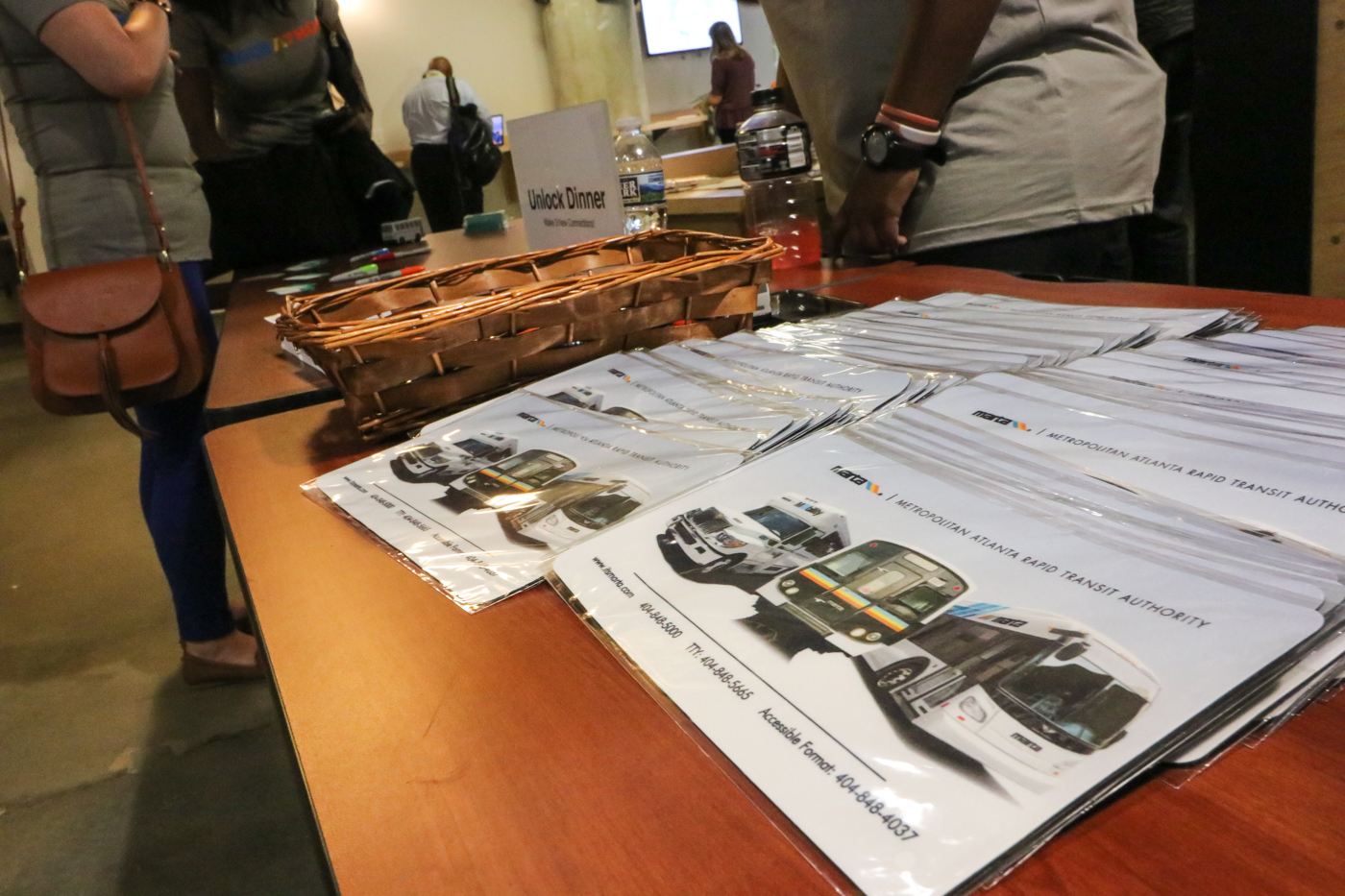
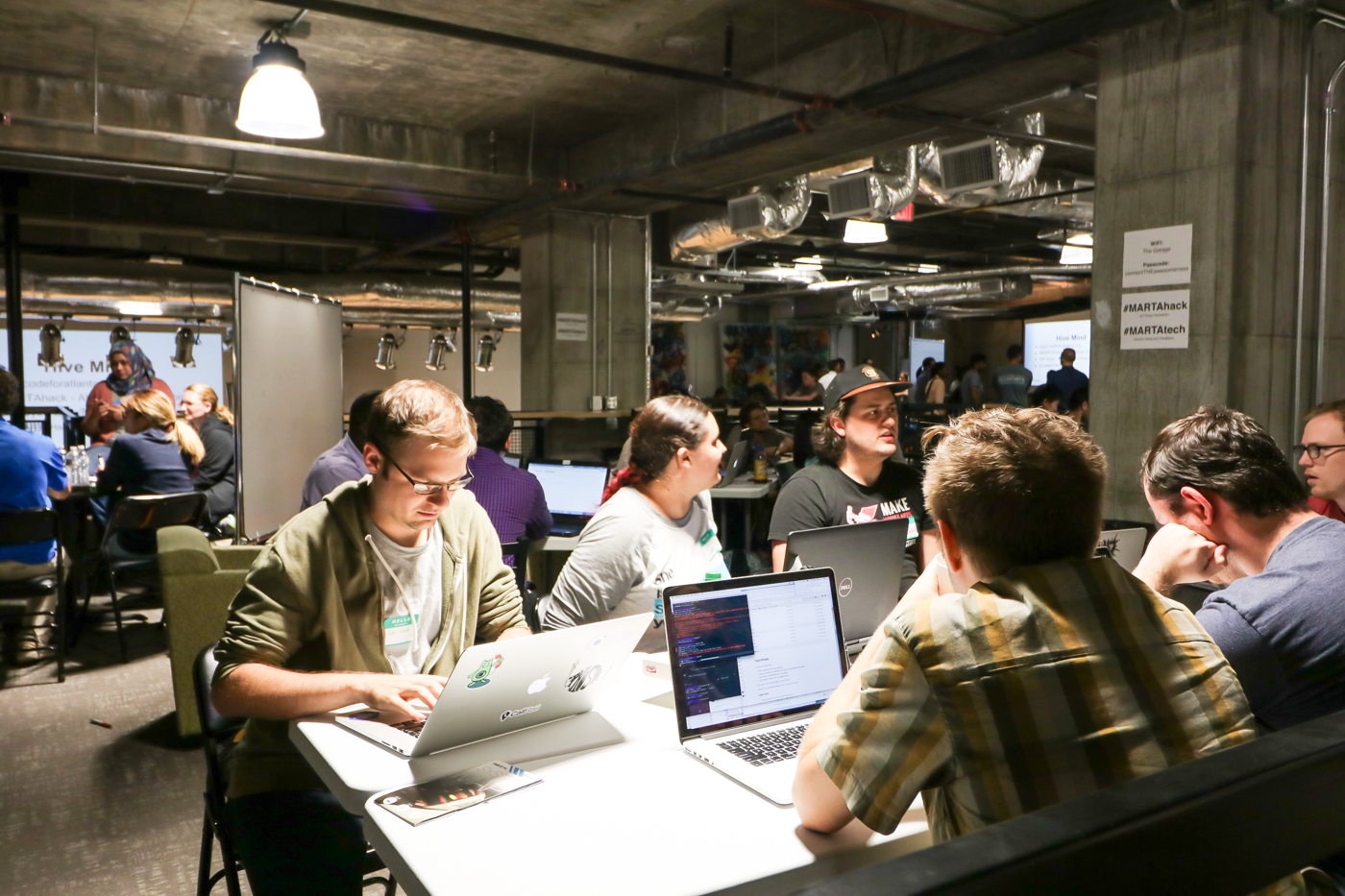
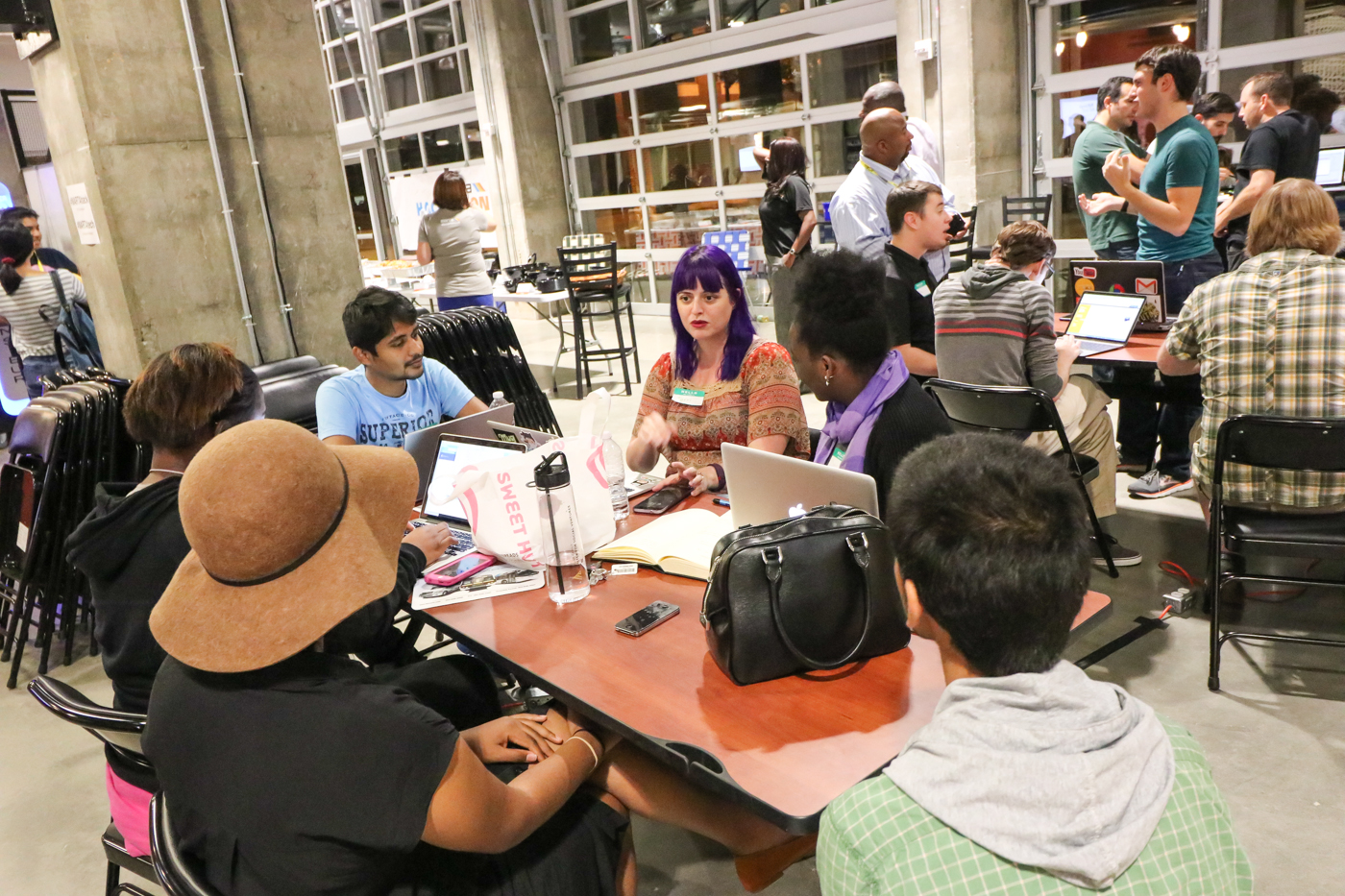
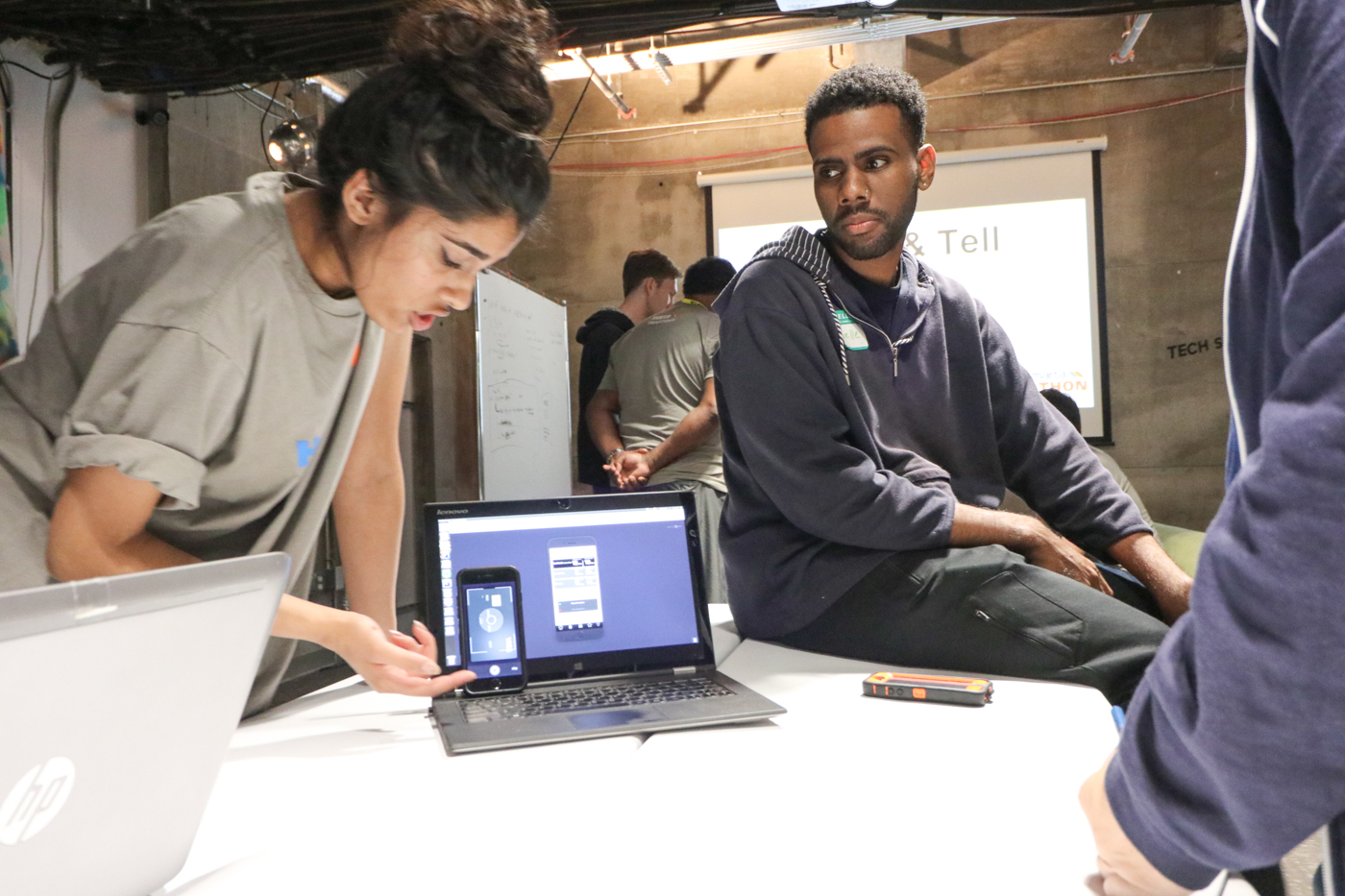
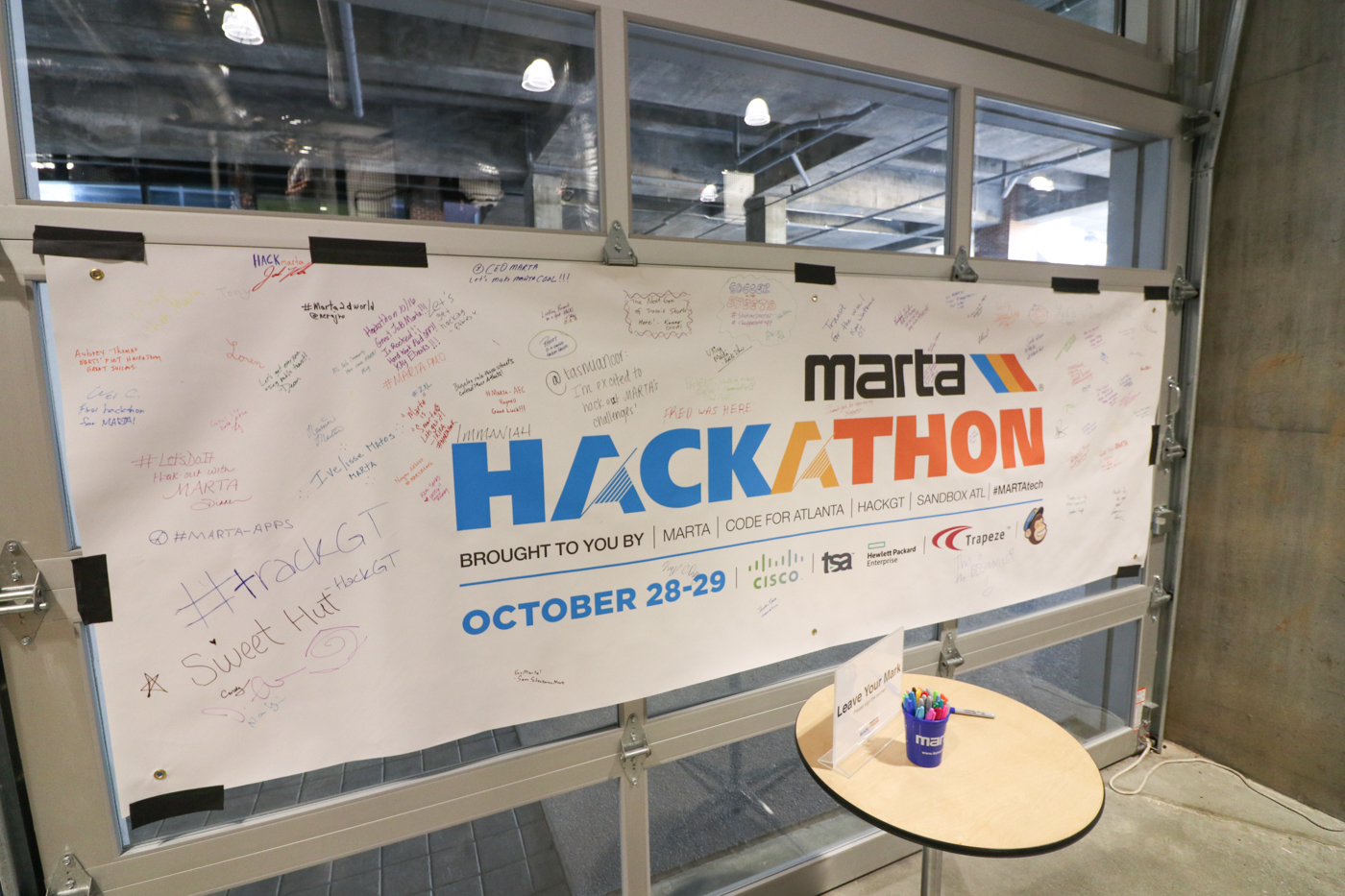
The next MARTA Hackathon goes down February 24-25 in the Garage at Tech Square. This time around, the topic is Smart City and Internet of Things. MARTA will showcase data collected via sensors within the system, specifically on-time data for trains and buses and parking data. Partners from the City of Atlanta's Smart City initiative will share progress made with the North Avenue smart corridor demonstration project and shed light on the assets being assembled for it.
“Here in Atlanta there is a very strong Internet of things community, so I’m looking forward to working with all of them to make some really cool, innovative projects in the coming year,” said Ray-Montanez.
Want to be part of the team helping make Atlanta better? You can sign up for #MARTAHack round two at www.martahackathon.org.
